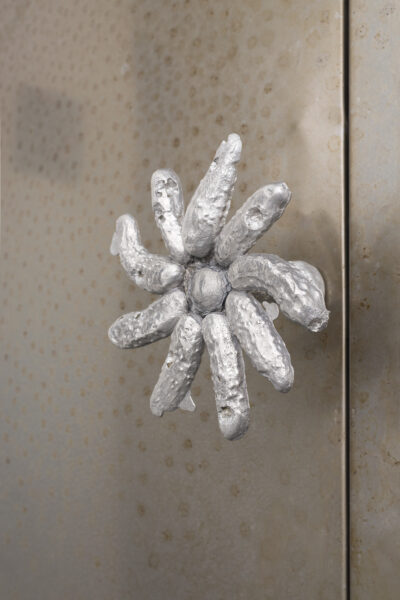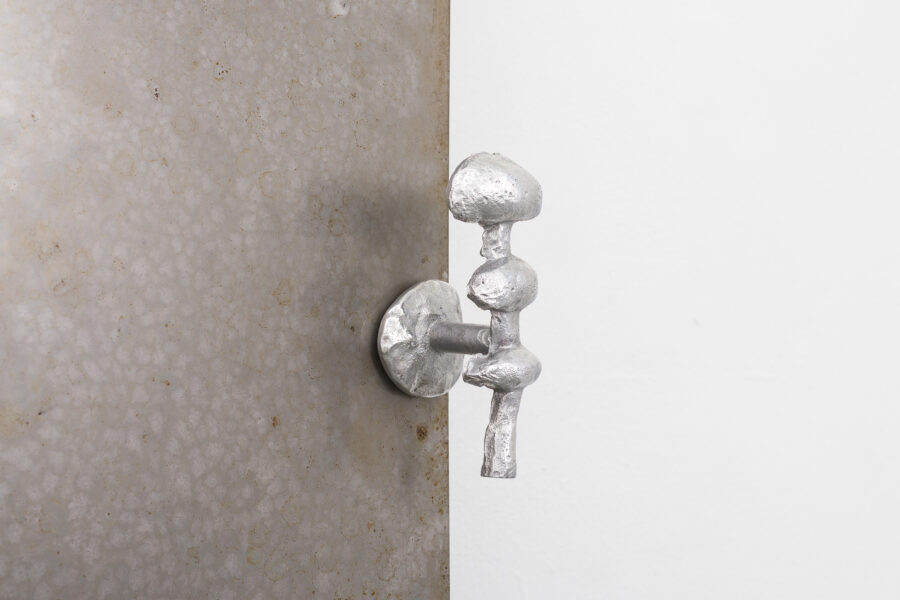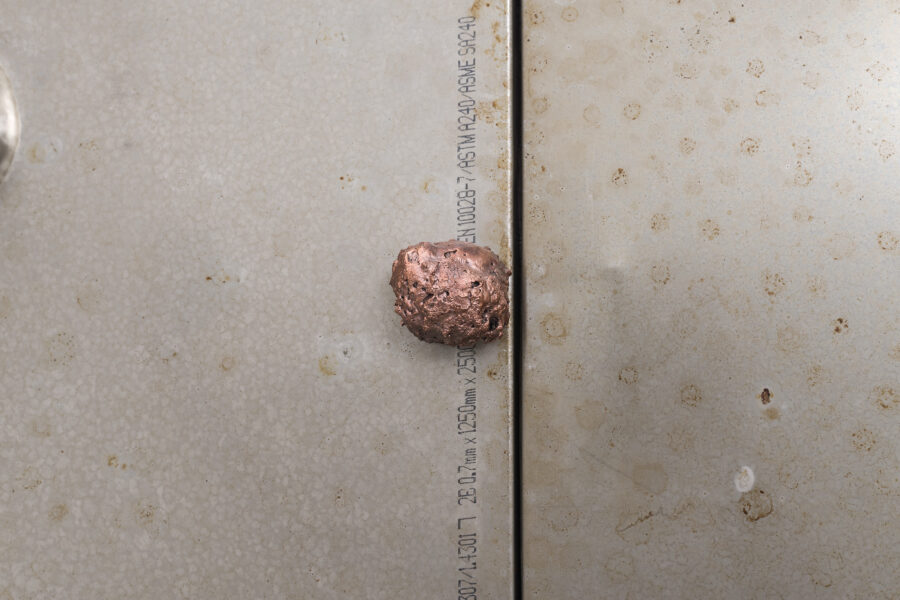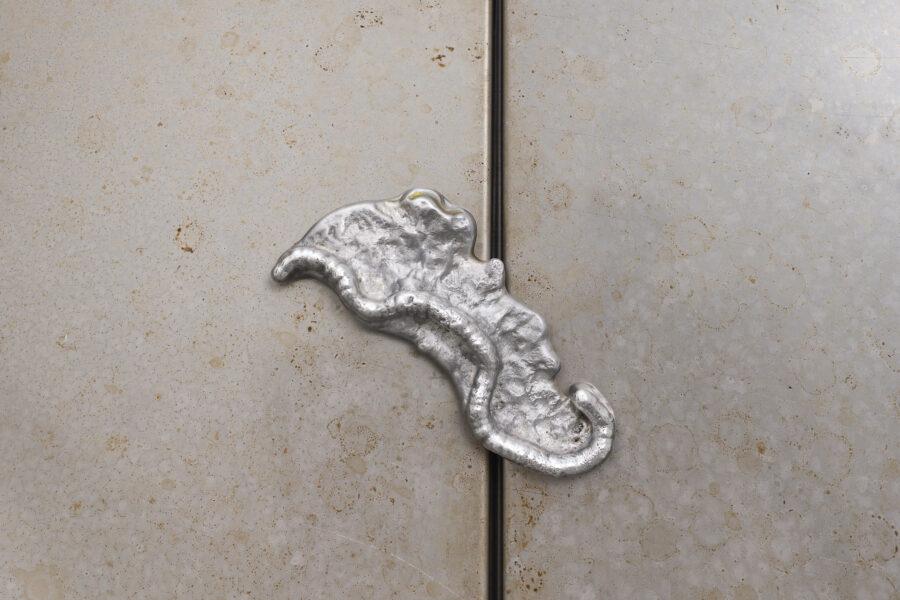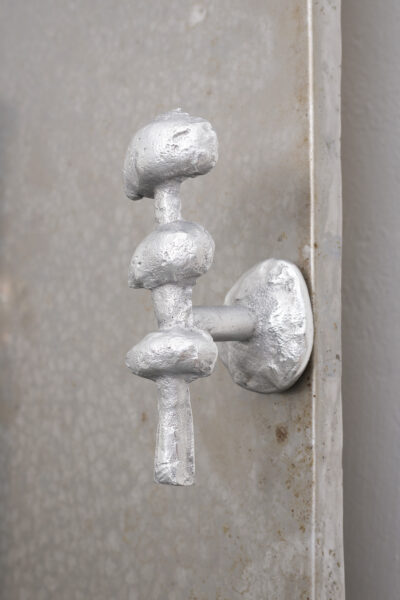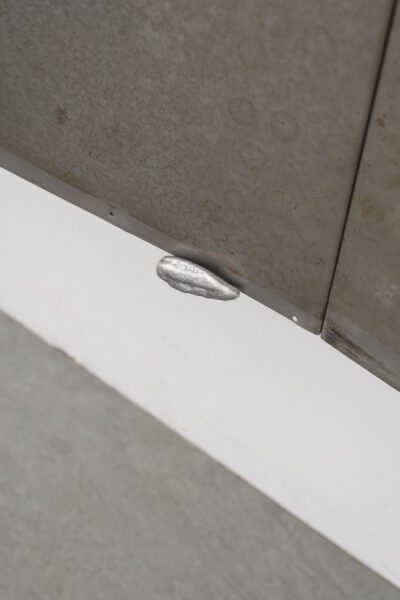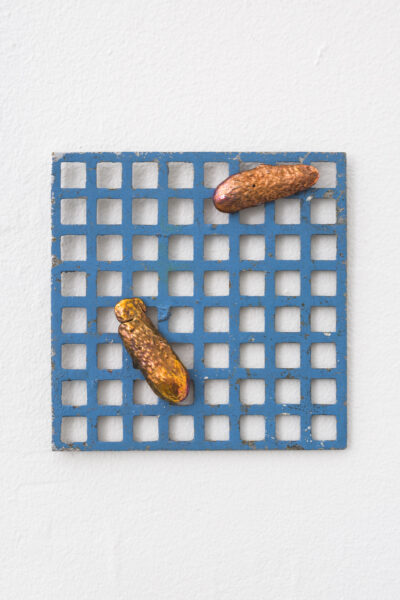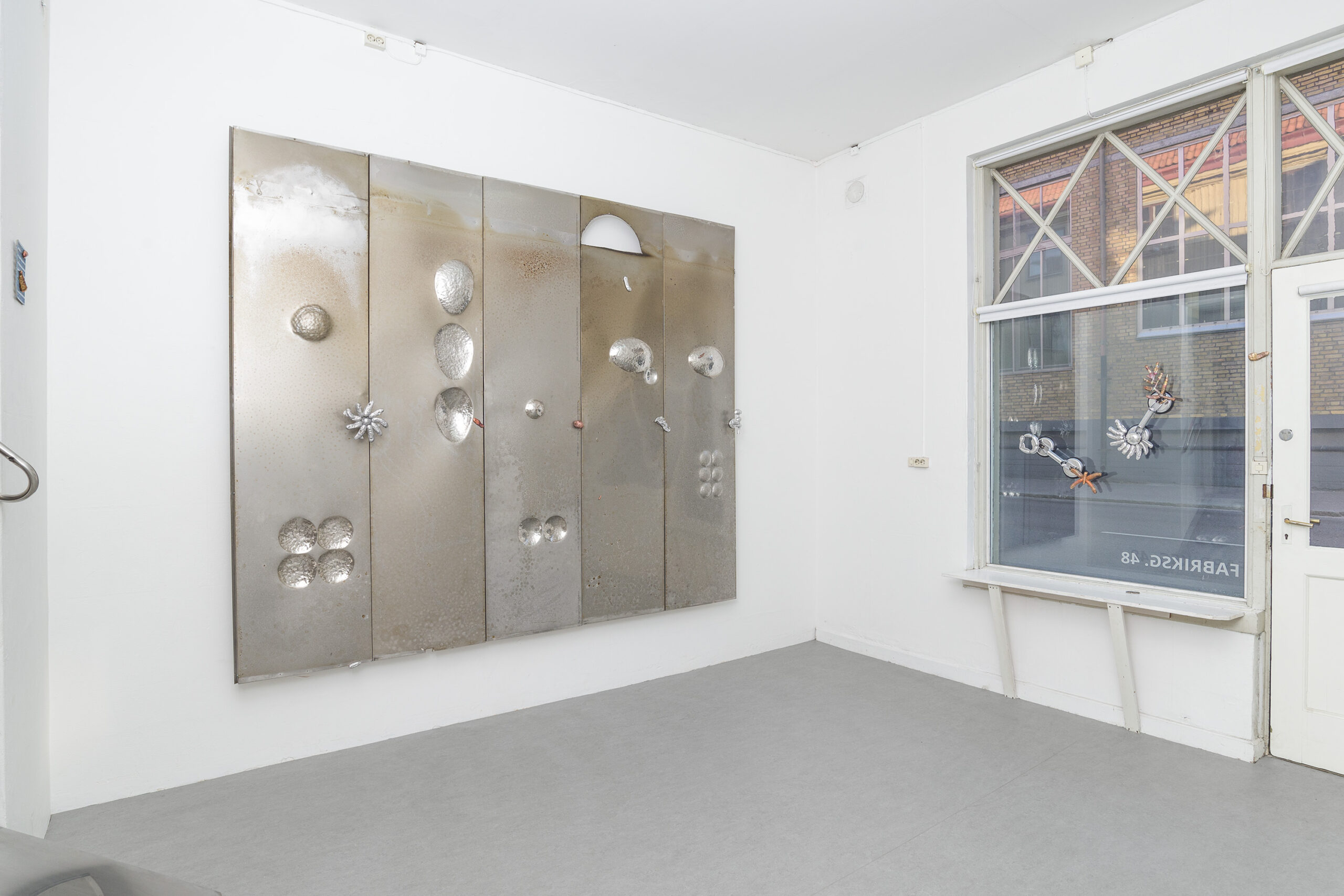
Ad Hoc Dog
Galleri Cora Hillebrand, Gothenburg, Sweden 2023
photography: Fredrik Åkum
Patina is a story of time, a memory of everything the surface has been touched by. Hands that have rubbed a bronze sculpture over decades, winds that have whipped, paths that have been trodden outside the usual ones. This transformation shows how objects and materials without their own agency exist in the world. The natural patina is not sought after, not modeled after something else, it is just the result of the world’s elements and processes pressing on. It is a passive process, but isn’t the marked surface also as close to a representation of the truth as we can get?
This truth is reused and refined in Matti Sumari’s work. Found materials are processed into sculptures and reliefs that bear traces of past lives. The low is elevated and material hierarchies are blurred. Sumari’s titles often reveal a humorous-poetic wonder at mundane materials and events, a tribute to shadow materials, what was left over.
Next to Matti Sumari’s studio there was for a time an unlicensed catering business where everything was done ad hoc. Holes were plugged with aluminum foil to keep the rats out, broken doors mended with duct tape, the smell of cooking oozed between the floors. When the neighbor got evicted, Sumari used what was left behind; the material was given new life, but also the home-spun methods.
An old metal sheet has been polished to the luster of an art object and is reminiscent of a makeshift room divider or minimalist sculpture. The stains from cooking remain and Sumari follows the existing patina and adds his own. The surface is exaggerated. Pits are hammered in. The active clause is important here, Sumari is the subject performing an action. Scrap metal is melted in a self-built furnace, self-taught in the craft, he casts sculptures, polishes, hammers and cuts. In something similar to an act of solidarity, the found material becomes a companion, something to learn from and adapt to.
Sumari’s process – or all art – could easily be likened to alchemy: wishful thinking and constant exercises in material transformation. The chemist Ulf Ellervik has described alchemy as an introverted activity, based on mystery and hindsight rather than progression and reproducible method. But the difference is that in art a transformation actually does take place. In the cycles of reuse, art is a turning point, the material jumps onto another track and continues on, now in a different sphere.
It may seem paradoxical to think of Matti Sumari’s work in terms of surface when so much is happening on other levels. The sculptures never seem to be simply placed in the room, but sit, lean, balance and crawl. At first glance, the smaller works act as silly fixtures in the room, handles and fittings, but the complex surfaces slow down the eye. Something reminiscent of pickles or starfish have shimmering surfaces that appear to have oxidized. To the sculptures’ relationship to the hand and body is added the surface’s relationship to the air.
The poet Tomas Tranströmer once wrote about a flag “so tattered by wind and blackened by the smokestack and faded by sun, it can be everyone’s.” Patina is both general and specific. It is shared by everything that is present in the world, while each surface constitutes a memory document.
The lowness of Sumari’s work – humor, shadow material, DIY – forms a solid point of departure for questions of material and tactile memory, not least in an age of accelerating automation. Will there still be handles? What will we hold on to?
— Christine Antaya
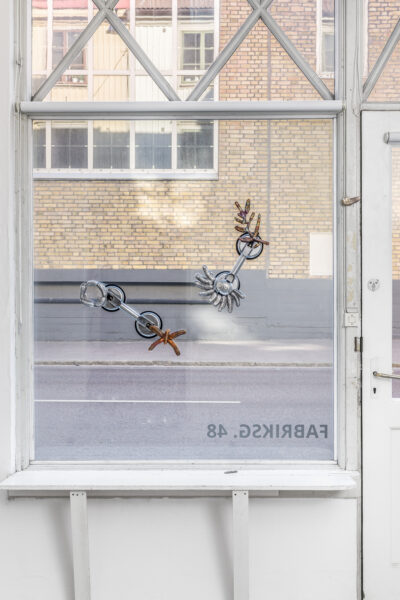
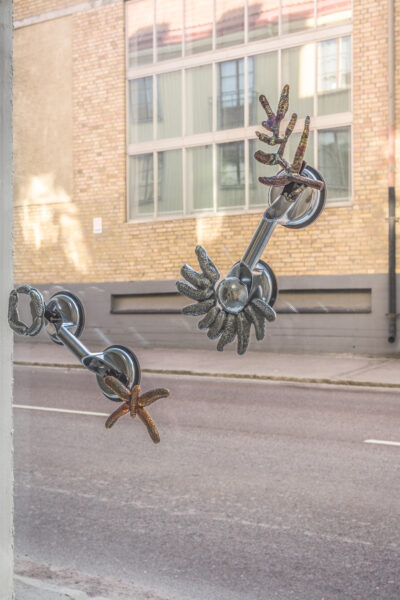
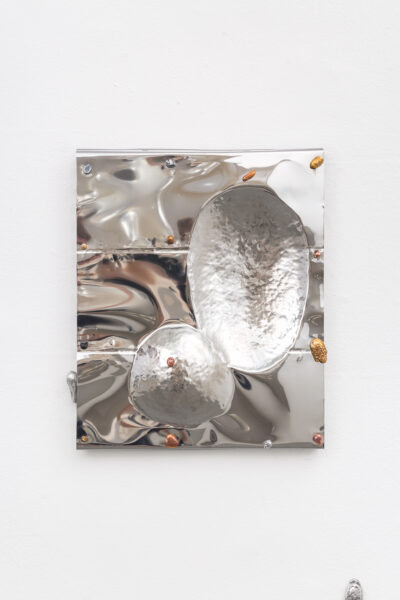
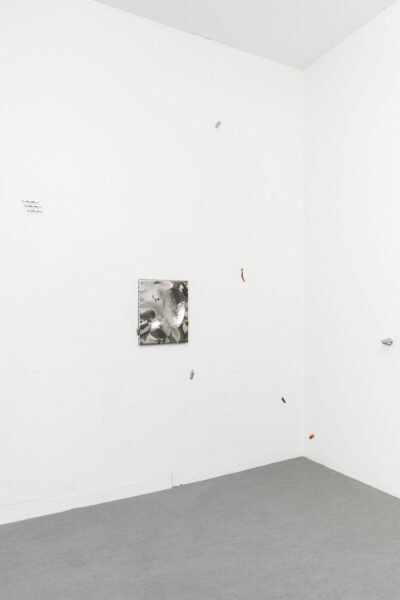
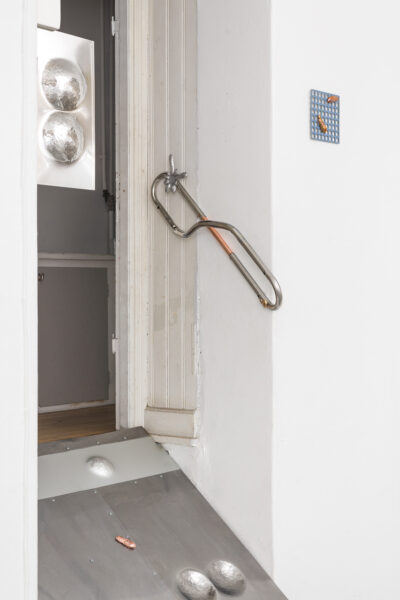
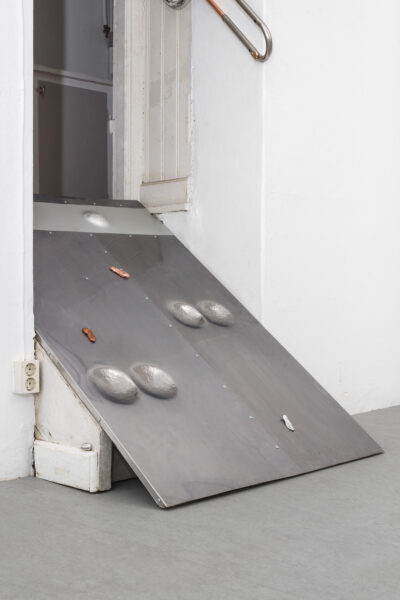
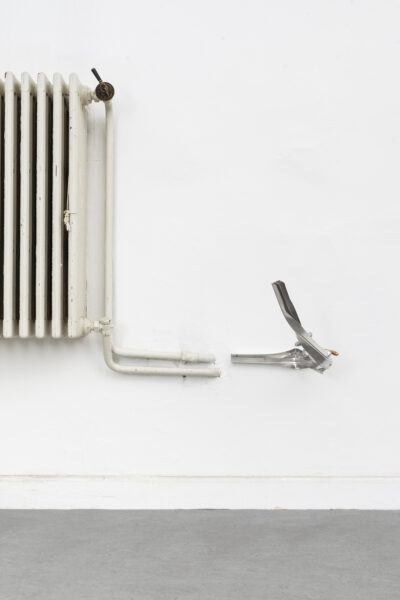
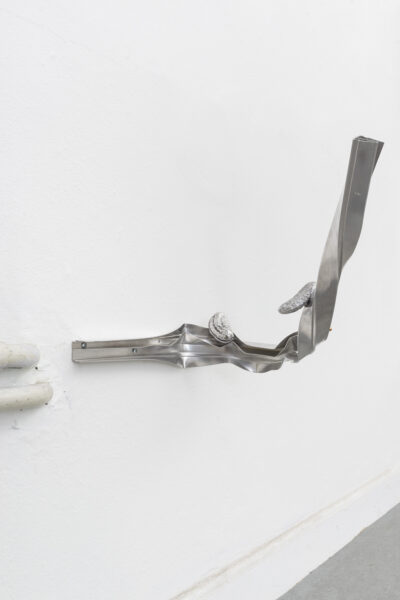
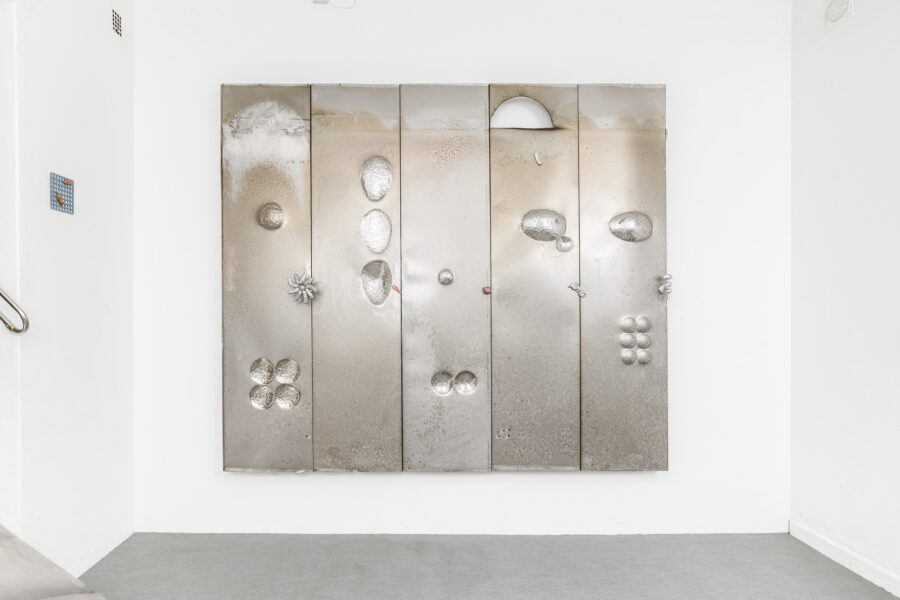
The baker’s oven bakes itself
stainless steel from illegal catering operation, copper, bronze, aluminium, cast with metals from dumping sites in Malmö, 2023
